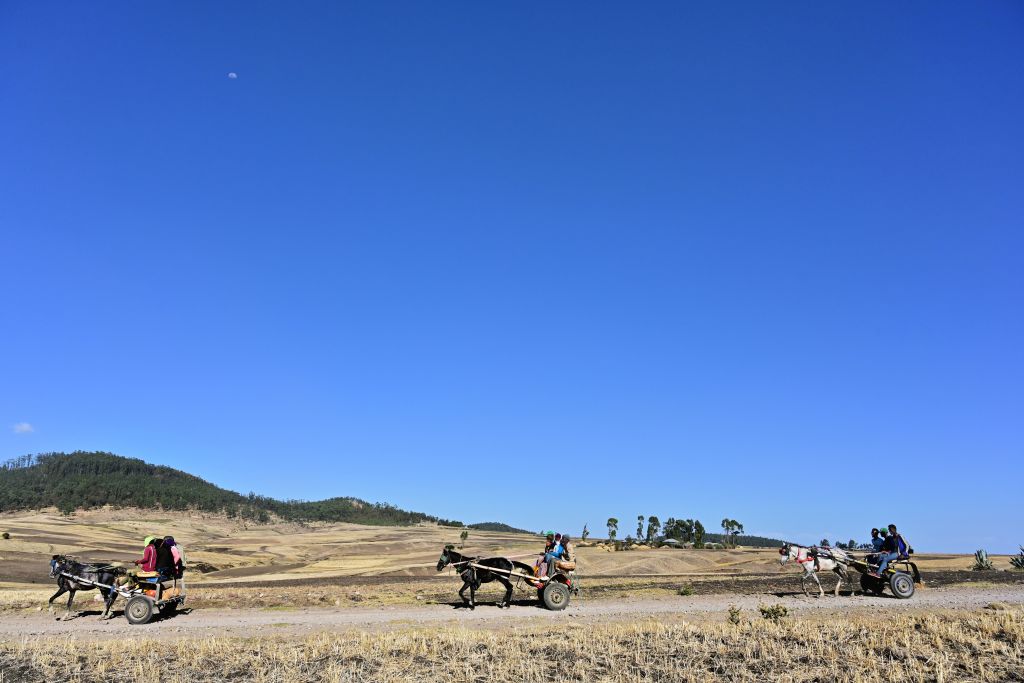ADF STAFF
Ethiopian businessman Tola Tesfaye was returning to Addis Ababa when armed men stopped his vehicle and kidnapped him for a ransom of 1.3 million birr ($23,000).
Tesfaye’s experience is becoming routine across central Ethiopia’s Oromia State, driven by the Oromo Liberation Army (OLA). The rebel group has been fighting Ethiopia’s government since 2018, when it broke with its political wing, the Oromo Liberation Front (OLF), after the OLF made peace with the national government.
Since 2018, the OLA’s ongoing conflict with the federal government has increased insecurity in the heart of the country. The OLA also has been responsible for hundreds of civilian deaths in addition to kidnappings. The federal government has labeled the group a terrorist organization.
“As long as alleged kidnappers are OLA members, we usually invoke the anti-terrorism proclamation to prosecute them, even if this is an in-absentia trial,” a senior prosecutor at the Oromia Regional State Justice Bureau told the Institute for Security Studies (ISS) on condition of anonymity.
Until recently, OLA kidnappers operated mostly in western Oromia and were motivated more by politics than money. Those abductions targeted police, government officials and their families. That has begun to change.
Experts say the OLA has turned to kidnapping to generate revenue in addition to driving home its political demands. Kidnappers have snatched field researchers, power plant workers, bus passengers, festival attendees and even political leaders such as Bekele Kacha, the governor of Saden Sodo district in Oromia’s South West Shoa zone. Kacha was abducted in June 2023 and found dead a few days later while his family was raising his $177,000 ransom.
The OLA abduction of cement factory workers in Oromia’s North Shoa zone in October 2023 came after the group tried to take control of the zone’s capital, Fiche town. The attempt ended after a fierce battle with government forces.
“Even if you just pay taxes, the fighters will attack you. It is very rare to find a family in our area who has not been affected by kidnapping,” a recent kidnapping victim, called Alemetu, told The Guardian.
Alemetu, the wife of a government worker, was taken from her home while she was pregnant, tied to a tree and beaten with a horsewhip while kidnappers demanded that her family pay a ransom. At the same time, her family was trying to free her uncle, who also had been kidnapped for ransom. The two ransoms left her family destitute.
According to the Ethiopian Human Rights Council, kidnapping victims often suffer torture and inhumane conditions and treatment.
Kidnappers have focused much of their attention on the road linking Addis Ababa to Djibouti, which serves as landlocked Ethiopia’s primary port. About 95% of Ethiopia’s imports travel that corridor, making Oromia kidnappings a threat to the national economy, experts say.
Ransom payments are suspected of fueling conflicts and aiding transnational arms trafficking and financial crimes, according to Tadesse Simie Metekia and Messay Asgedom Gobena, writing recently for the ISS.
Tadesse and Messay called for Ethiopian federal authorities to deepen their investigations into OLA activities, particularly regarding kidnapping for ransom. “Regardless of whether kidnappings are acts of banditry, terrorism or organized crime, Ethiopia must conduct thorough intelligence-driven investigations and formulate a focused strategy to tackle these crimes,” they wrote.

